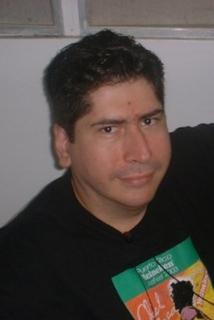Puerto Rico, U.S. struggle for middle ground
Puerto Rico, U.S. struggle for middle ground
Mike Thomas / Orlando Sentinel
What to do with Puerto Rico?
That question dates back to 1898, when the United States snatched the island from Spain.The relationship has slowly evolved. The U.S. granted citizenship to islanders in 1917, and in the ensuing years allowed them to draw up their own constitution.
But still, Puerto Ricans have no voting representative in Congress and cannot vote for president. They pay no federal income tax but do pay the other federal taxes such as Social Security. They can be drafted and have fought in our wars.The island gets money for education, disaster relief and social programs such as food stamps.It is classified as a commonwealth, a temporary status that is little more than a nice word for colony.
But having the United States as a colonial master isn't such a bad gig. That is why Puerto Rico hasn't followed the traditional colonial path of yearning to be free. U.S. citizenship is not something people give up lightly.Those who support independence are little more than a fringe group.Yet there is something grating about being a colony. It leaves the island in limbo about its future. And so many Puerto Ricans want a promotion in their status.The ultimate promotion, of course, would be to 51st state in the Union.This has been debated for decades, with many Puerto Ricans fearing the island would lose its Hispanic culture.
Voters rejected statehood in referendums held in 1967, 1993 and 1998.This has led to the search for a middle ground, something that allows the island to shed its colonial status but stay attached to the United States without actually becoming a state.One idea was called "enhanced commonwealth." Puerto Rico would keep all the perks of belonging to the United States, such as citizenship and continued social programs, but would be allowed to ignore federal laws and could engage in its own foreign trade.I'll quickly sum up the response to this idea in Congress: Fat chance.Rep. Jose Serrano of New York put it this way: "Puerto Ricans must decide whether they want to be a state or an independent nation. No other option exists except the current colonial status.
"But that didn't stop U.S. Sen. Mel Martinez from throwing another option on the table this week. It is called "free association."This would make Puerto Rico something of an independent nation. It would continue its close relationship with the United States but under negotiated terms. One assumes the island would remain under the U.S. security blanket, get disaster response and probably receive money from U.S. social programs.Also on the negotiating table would be U.S. citizenship for future generations of islanders. I think the fear of losing it gives free association about as much chance on the ballot as a snowball would have on my roof this afternoon.
Congress may order a vote on the island's status by the end of 2009. Given the lack of good options, I think statehood has a good chance of winning.But then Congress has to agree, an iffy proposition given the angst about Hispanic immigration. That Puerto Ricans are U.S. citizens, not immigrants, may get lost in the current political environment.Not helping matters is that the island's economy is a basket case.But for Congress to order a vote and not follow through on the result would cause a political firestorm on the island and among the millions of Puerto Ricans on the mainland.Stay tuned for some very interesting politics to come.



0 Comments:
Publicar un comentario
<< Home